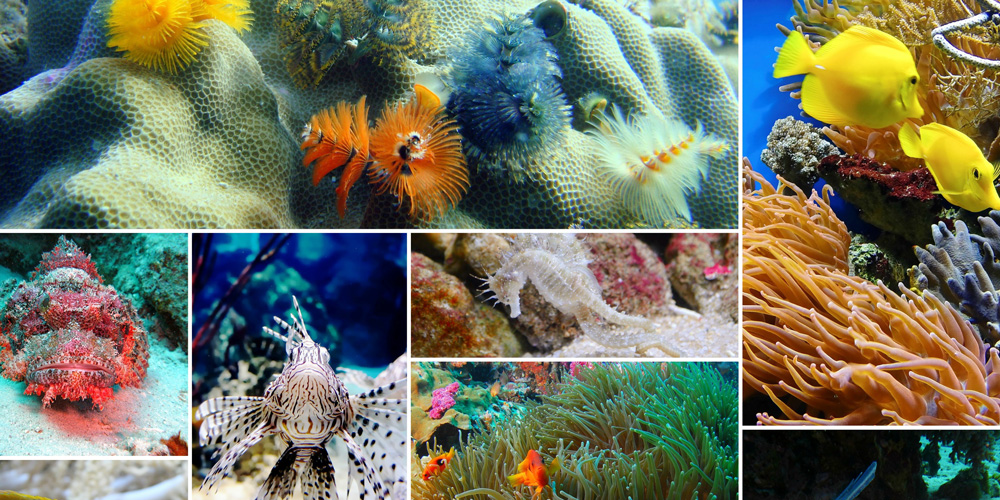Welcome to the Maritime 21st Century and the New Quest for the Golden Fleece
- September 18, 2018
I remember as a child being glued to the TV, watching famous oceanographer, Jacques Cousteau navigate his way under the sea. I found myself entering this magical world, where I could join endless varieties of fish in their natural habitat and wonder at the strange beauty of the marine landscape.

Cousteau was a true pioneer, a visionary ahead of his time. Back in the 1970s, he spoke of the oceans’ potential, predicting a time when the world’s energy crisis would be solved by harnessing tidal and temperature changes in the sea; when metal ores would be mined from the ocean bed and when farmers in diving suits would gather food from marine plantations.
Fast forward to today and I continue to be passionate about the ocean. As the Maritime Business Development Leader with Dell EMC OEM, it’s pretty exciting that the company I work for plays an important part in marine innovation.
Exactly why The Arggonauts from the Fraunhofer IOSB in Karlsruhe are using mobile robotics to revolutionise deep-sea exploration. The team is using customised Dell EMC workstation technology – the Dell EMC Precision 7910 – to power a cost-effective solution that maps the bottom of the ocean at a depth of several thousand metres.
Powered by Intel® Xeon® processors, the Dell EMC workstations control remote operated vehicles from the shore as well as capturing subsea data camera images. HPC Datacentre compute renders the images and translates data into maps while Artificial Intelligence is used to quickly classify images from the unstructured data.
As the only German group in the prestigious International Shell Ocean Discovery XPRIZE competition, the Arggonauts, under the leadership of Gunnar Brink, are ranked as just one of nine successful teams from around the world, who have made it through to the final round from the original line up back in 2016. With a prize fund of $7 million, this marine competition aims to discover the mysteries of the deep by combining the power of unmanned underwater technologies with mapping and advanced imaging systems.
For me, this is Greek mythology reimagined – picture a modern day Jason on the Argo, travelling in unchartered waters, equipped with robotics in his quest for the Golden Fleece!
In the final round, scheduled for this November, the Arggonauts will go head-to-head with the other finalists in a field test. The team’s specially designed, unmanned, underwater vehicles, called, “The Great Divers” will have to measure at least 250 square kilometres of the sea bed at a depth of 4,000 metres within 24 hours, find objects and take pictures that are worthy of an award. After completing this task, “The Great Divers” will be collected by autonomously-operated catamarans. The team then has 48 hours to convert the data into a map.

I believe that this work is critical for the future of our planet. Did you know that we currently have better maps of the moon and the surface of Mars than we do of the bottom of our oceans? It’s amazing to think that the final frontier may not actually be in space, but right here on Planet Earth. If you think about it, most intercontinental communications use deep-sea cables – you could say that the Internet practically comes from the sea! International trade is also linked to the marine world as import and export trade depend on container shipment.
Most importantly, I am reminded of Cousteau’s predictions. With the development of deep-sea exploration coupled with the increasing growth in the world’s population, natural resources from the sea are set to become increasingly important. In my view, we need to urgently accelerate innovation in order to improve the speed, scale and image resolution that is necessary to truly understand the ocean.
The hope is that over the long-term this work will allow us to discover and protect new species and underwater life forms, along with safer methods of exploration. Of course, the kid in me also dreams that this work will shed new light on the ocean. As Cousteau said, “The sea, once it casts its spell, holds one in its net of wonder forever.”
This project also demonstrates our commitment to Dell4Good, where we put our technology and expertise to work for the good of our planet. I wish the Arggonauts every success in the upcoming finals and would love to hear your comments and questions.
To learn more about Dell EMC OEM Marine Solutions, visit: https://www.dellemc.com/en-us/oem/maritime.htm
To learn more about The Arggonauts, visit: www.arggonauts.com
Keep in touch. Follow us on Twitter https://twitter.com/etienne_mary and @DellEMCOEM, and join our LinkedIn OEM & Iot Solutions Showcase page here.